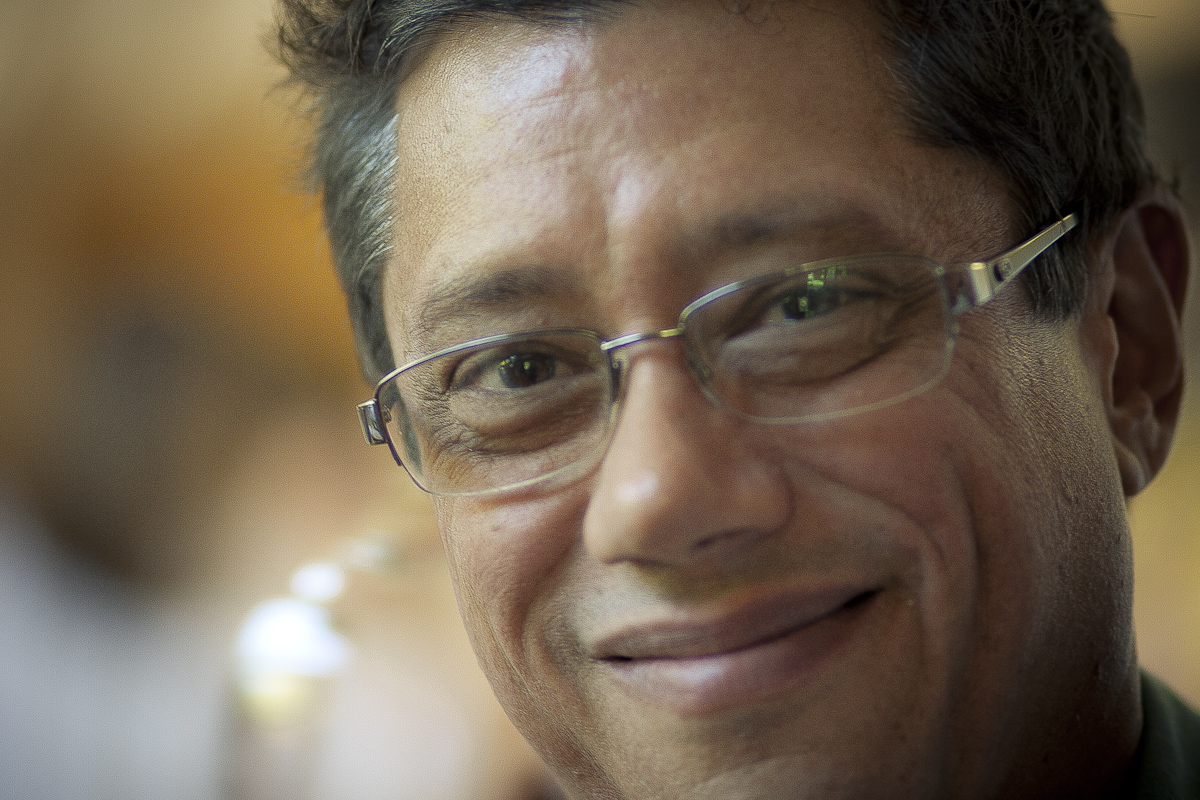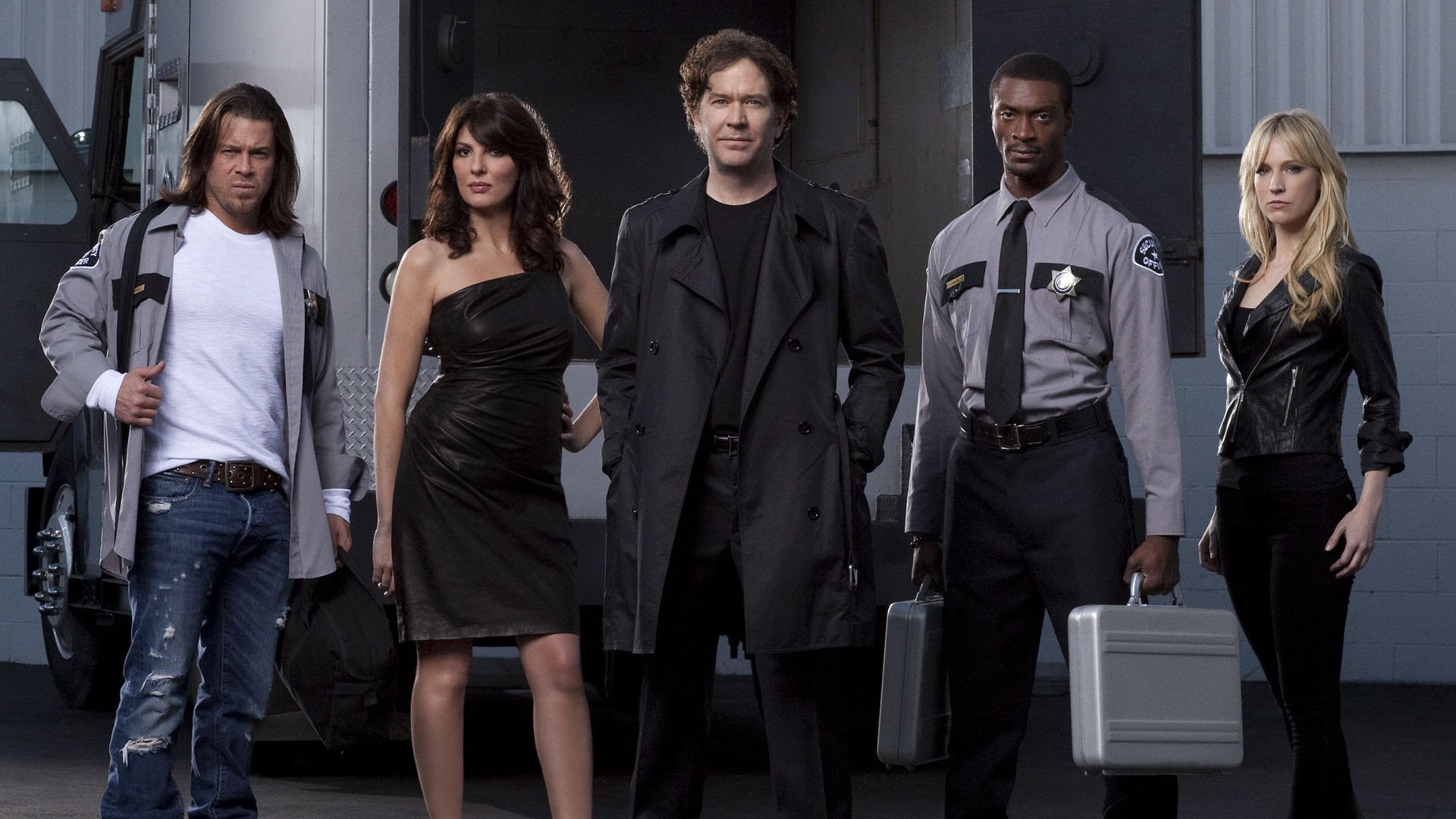Dean Devlin Revives 1990s Indie Producer Playbook For 2022 Streaming Era
The creative mind behind nineties Roland Emmerich-directed blockbusters including ‘Stargate’ and ‘Godzilla,’ and aughts-era basic-cable stalwarts such as ‘Leverage,’ reinvents himself yet again as a prolific indie producer of ‘lean-back’ AVOD/FAST fare

The smarter way to stay on top of the streaming and OTT industry. Sign up below.
You are now subscribed
Your newsletter sign-up was successful
Sometimes it can feel like the 1990s again: Russia’s making a mess of the established world order, nostalgic Millennials are pining for the music of their youth after the Super Bowl’s Halftime HipHop-abration … and Dean Devlin is making lots of shows.
The big difference, at least for Devlin, is he’s making TV, more specifically, streaming TV, after a blockbuster-filled ‘90s where he wrote and/or produced Stargate, Independence Day The Patriot and 1998’s Godzilla.
Here in the 2020s, only a few companies get to make giant movies, which may not make sense financially here in late pandemic hangover.
So Devlin has shifted to making episodic series for streaming services, including two recently for Amazon’s free, ad-supported streaming service, IMDb TV. He’s also launched his own OTT app and FAST channel, ElectricNOW, which is on most of the usual suspect platforms and provides a way to connect his shows’ various audiences with each other, and with hew next projects.
And these days, he’s one of an increasingly rare breed in Hollywood, an independent producer with multiple projects and ventures, mixing business models from different eras to create a new kind of sustainable success.
“I think it's harder than ever to be independent, and you kind of have to be nimble to survive,” Devlin said. “So we've always described ourselves more like a speedboat than an ocean cruiser.”
That speed boat is turning over the RPMs faster than ever, navigating between the giant ocean liners out there, all of which are leaving less and less room for independent operators to stay afloat.
The smarter way to stay on top of the streaming and OTT industry. Sign up below.
“Most of the platforms now tend to want to own all of their own content,” Devlin said. “So to be able to do an old fashioned split-rights deal, and be able to finance your own shows is harder than ever.”
Devlin launched Electric Entertainment, of which he remains chairman and CEO, in 2001, when he was still best known for his blockbuster movies. He evolved quickly into a series of TV shows for various venues, because that’s where the real money was.
And now, Electric Entertainment has evolved into its own vertically integrated operation, with an international sales and distribution unit, post-production/visual effects shop, and that OTT/FAST operation.
Devlin is, as my editor’s wife (reportedly a fan of his shows) suggested, “the king of 60%-attention TV.” That’s not necessarily a bad thing, as audiences modulate streaming habits to fit differing needs at different times of day.

“What is interesting is this difference between the lean-back experience and the lean-forward experience,” Devlin said “People love their Netflix and their HBO Max and stuff. But there's another type of television experience that I think people started to miss, which was coming home and turn on the TV and make dinner and fold your laundry, and lean back and discover something that's playing. I think AVOD you know, whether it's through the FAST channels or the on-demand, kind of brings back that lean-back experience.”
To that end, Devlin is building his own business models for the new era, selling shows into networks looking to have distinctive content for kick-back crowds.
Amazon’s FAST platform, IMDb TV, for instance, recently picked up a second season of action series Almost Paradise, on which Devlin is a co-showrunner and writer. Almost Paradise first ran on WGNA in early 2020 before the first season began running on IMDb TV.
The show stars Christian Kane, who’s also starred in another Devlin show, 2021’s Leverage: Redemption, which rebooted another Devlin-produced series, Leverage … which ran for 76 episodes between 2008 and 2012.
Yes, like all those big boats, Devlin has a lot spinoffs, sequels and reboots floating in Electric’s harbor. That 1994 Stargate movie fueled a flotilla of MGM TV shows and straight-to-video features in the aughts. No surprise, Devlin is now producer on a recently announced Stargate project.
Devlin and Jonathan Glassner, who together created fantasy-adventure series The Outpost for the CW over four seasons beginning in 2018, just got another series order last month, The Ark for Comcast’s SyFy Channel.
In all those cases, Devlin used deals that wouldn’t have looked out of place a quarter century ago. The secret:
“It depends on what you're offering, and what you're bringing to the table,” Devlin said. “How frugal can you be? Can you make it more appealing? We've found some good partners recently who were willing to work with us where we could maintain the ownership of the show, and we could deficit (finance) the show and basically work off license fees domestically, while selling foreign rights.”
Given the industry push for more work-for-hire or cost-plus deals, Devlin has had to be nimble and flexible, he said. So a couple of years ago, the company began focusing on nurturing its own library of shows, their fans and the opportunities to create more projects for this fast-changing thing known as “TV.”
“That didn't mean we would work exclusively where we have to own all of our own content, but that was definitely our preference,” Devlin said. “Can we find ways to do business that made sense for the partners, where either a reduced license fee or bringing in a pre-existing audience was appealing enough to want to work in this way? And the irony is, while the business has moved away from this model, we're doing more than we've ever done before.”
ElectricNOW has become a tool to maximize Devlin’s library by connecting fans of, say, Redemption with The Librarians and The Outpost, then marketing to all of them for Leverage: Redemption or The Ark.
“A lot of it was finding ways that we could do network-quality-level shows at a reduced price, how we were able to aggregate our fans, and direct them to new platforms, which needed to increase their audience size,” Devlin said. “So we were able to find ways to to look at the goodwill equity of the shows we've made, and find ways to maximize that to create new shows, and direct audiences towards what we're doing. By starting ElectricNOW, we were able to aggregate those fans into one place where suddenly people who came there to watch one show got turned on to our other shows, and then joined that fan base.”
Fan engagement isn’t something Hollywood did much of until recently, when direct-to-consumer operations finally came on line. But that’s exactly what ElectricNOW does for Devlin’s operation.
“We started it really more as a fan aggregation site, but then it started to perform really well,” Devlin said. “We are so far ahead of our projections on what we thought we were going to get audience-wise and financially. But I think that's also just being in the right place at the right time. AVOD is really exploding right now, and places like IMDb TV are just going to kind of rule the world there. And now that Roku is getting into creating originals, I just think that we started at the right time on the right type of platform.”
David Bloom of Words & Deeds Media is a Santa Monica, Calif.-based writer, podcaster, and consultant focused on the transformative collision of technology, media and entertainment. Bloom is a senior contributor to numerous publications, and producer/host of the Bloom in Tech podcast. He has taught digital media at USC School of Cinematic Arts, and guest lectures regularly at numerous other universities. Bloom formerly worked for Variety, Deadline, Red Herring, and the Los Angeles Daily News, among other publications; was VP of corporate communications at MGM; and was associate dean and chief communications officer at the USC Marshall School of Business. Bloom graduated with honors from the University of Missouri School of Journalism.

